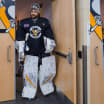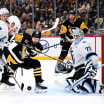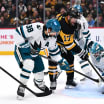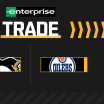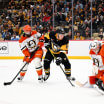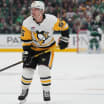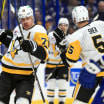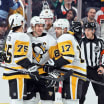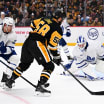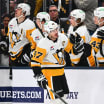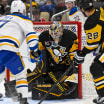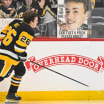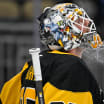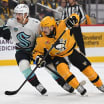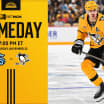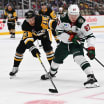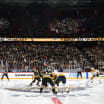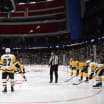Pens look for penalty kill to return to form
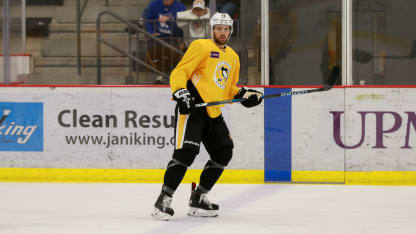
The unit started this season in good form and looked to be playing up to the standard they had set. Through the first eight games of the season, Pittsburgh killed 83.8 percent of power plays, good for seventh in the league.
But since Oct. 21, the penalty kill has fallen off some as their success rate is down to 77.3 percent, which sits 26th in the NHL. After the Penguins surrendered a pair of power-play goals to Chicago in a 2-1 loss on Saturday, head coach Mike Sullivan stressed his team needs to be better when down a man.
"I think it starts with a number of things," Sullivan said. "It starts with our own urgency and our willingness to compete on pucks and block shots. Do all these thankless jobs that make good penalty kills good penalty kills. It's attention to detail, it's working together, but for me, it starts with a sense of urgency that we don't have right now."
Not being among the NHL's cream of the crop on the penalty kill is something that the Penguins aren't used to based on their shorthanded success in recent years. It's also something that the Penguins penalty kill unit is adamant on changing.
"Just get back to the details," Tom Kuhnhackl said. "We haven't been focused lately, making simple mistakes that we didn't do at the start of the year. It's been costing us games lately so we have to make sure we clean that area up."
One of the biggest ways the Penguins can help get their penalty kill back in form is to stay out of the box. They've found themselves shorthanded multiple times each game. While some of that can be attributed to the NHL cutting down on some infractions and tightening the game, the Penguins' 100 minor penalties lead the league.
Not only are these infractions ceasing any momentum the Penguins might be generating, but it also disrupts the flow of the game, and keeps some of their most dynamic players off the ice for an extended period of time. When the PKers do get on the ice, they have to keep their shifts short.
"We have to make sure we stay focused and we work hard," Kuhnhackl said. "Sometimes we tend to extend our PK shifts, that's when we get tired and can't chase and can't pressure. We have to make sure we keep our shifts on the short hand and work harder than we would 5-on-5."
The Penguins did lose some of their key penalty killers from last season over the offseason with the departures of Nick Bonino, Matt Cullen, Ron Hainsey and Trevor Daley. However, their success at the beginning of the year indicates that their current manpower in the locker room is enough to produce a quality penalty kill unit.
"We know it's there," Brian Dumoulin said. "We knew at the beginning of the season we were winning a few games because of our PK, and now we are losing some games because of the PK. We know we have it in the room. We need to get a little stiffer, make sure they don't give them second opportunities and make sure they don't give them momentum from the power play."
Riley Sheahan, acquired from Detroit via trade, has been assimilated into the unit, and one of his biggest assets is in the faceoff circle. His 54.4 percent success rate on draws is tops among Penguins centers, and the ability to get a quick win and a zone clearance on that initial faceoff is huge in that it allows penalty killers to settle into position or get a quick change.
"I think it's a mindset when it comes to the kill," Carl Hagelin said. "I think every single guy on the ice has to be better. Whether that's execution, details, blocking shots, or being more aggressive. We have to figure it out on the penalty kill, that's the bottom line. It's a matter of taking pride in being out there, it's a big role you have when you're out there. The best PKers are like that. They are out there blocking shots and sacrificing their body, winning battles out there. It's reading, getting in lanes and making sure they don't get great looks."
"It's important for us at those timely moments to get those kills," Dumoulin added.


